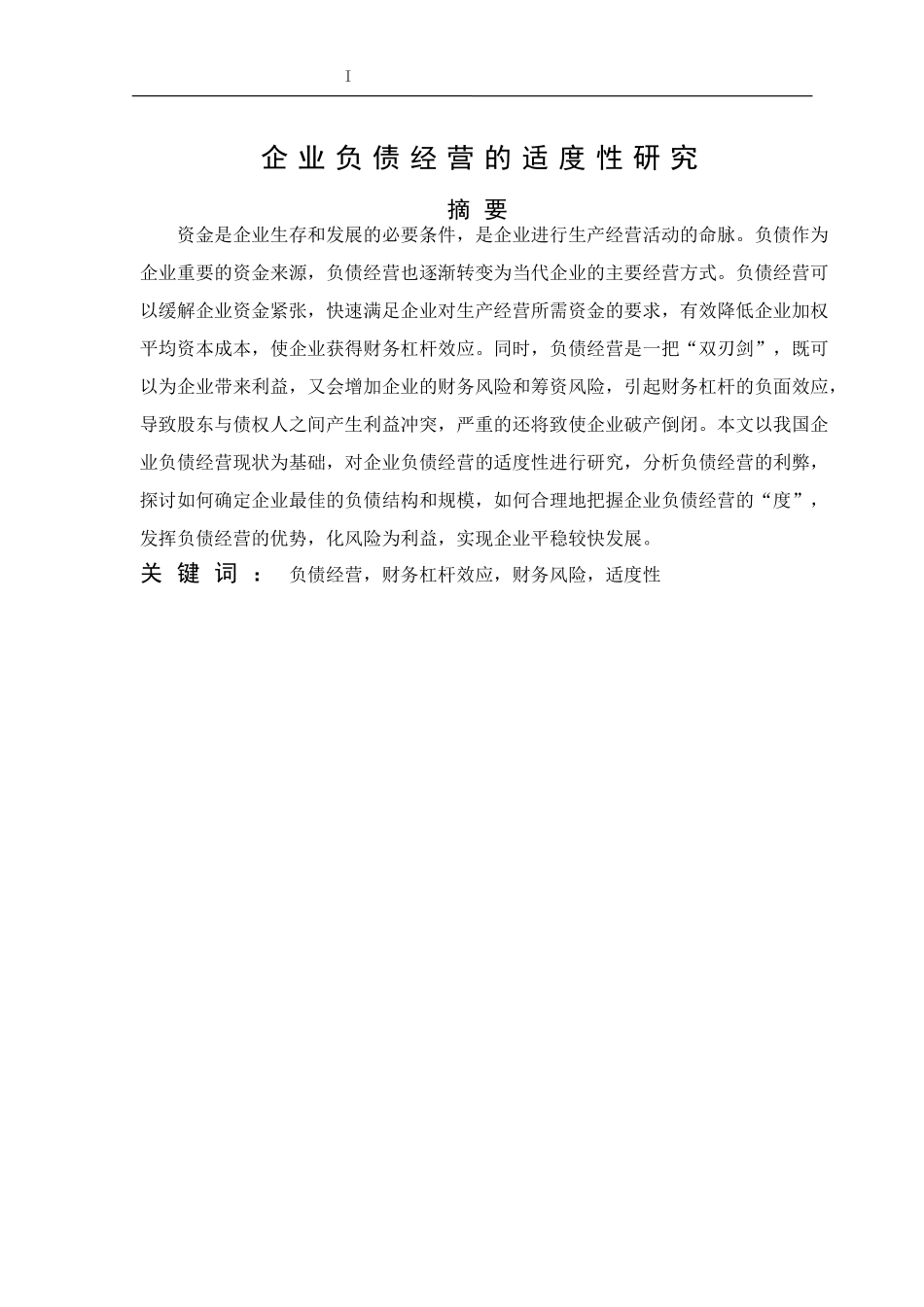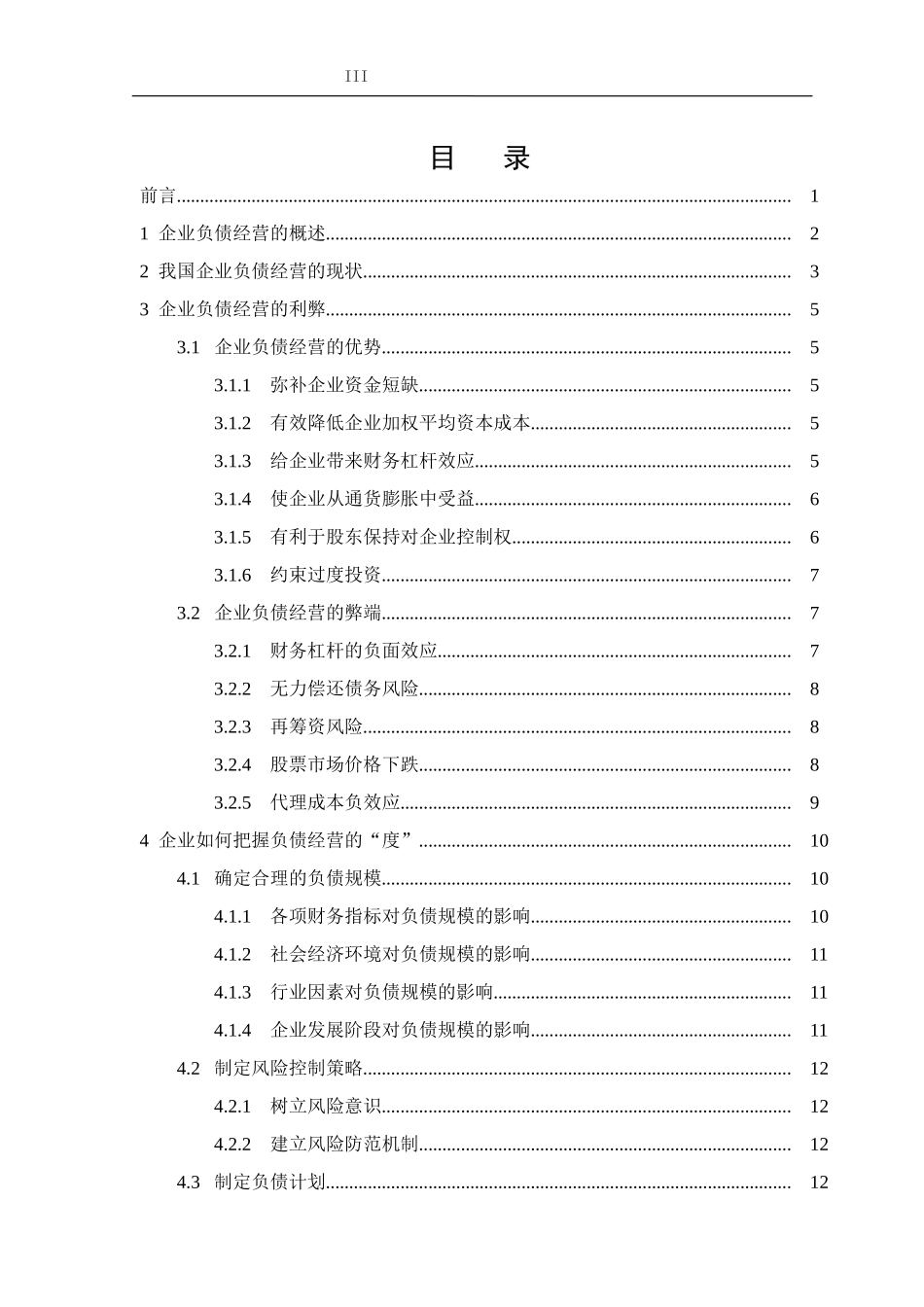I企 业 负 债 经 营 的 适 度 性 研 究摘 要资金是企业生存和发展的必要条件,是企业进行生产经营活动的命脉。负债作为企业重要的资金来源,负债经营也逐渐转变为当代企业的主要经营方式。负债经营可以缓解企业资金紧张,快速满足企业对生产经营所需资金的要求,有效降低企业加权平均资本成本,使企业获得财务杠杆效应。同时,负债经营是一把“双刃剑”,既可以为企业带来利益,又会增加企业的财务风险和筹资风险,引起财务杠杆的负面效应,导致股东与债权人之间产生利益冲突,严重的还将致使企业破产倒闭。本文以我国企业负债经营现状为基础,对企业负债经营的适度性进行研究,分析负债经营的利弊,探讨如何确定企业最佳的负债结构和规模,如何合理地把握企业负债经营的“度”,发挥负债经营的优势,化风险为利益,实现企业平稳较快发展。关 键 词 : 负债经营,财务杠杆效应,财务风险,适度性 IIAbstractCapital is a necessary condition for the survival and development of enterprise, and it is the lifeline of enterprise production and management activities of the. Debt is an important source of funds, and Operation on Borrowings is gradually transformed into the main management mode of modern enterprise. Operation on Borrowings can ease the tension enterprise funds, satisfy the enterprise funds required for the production and operation requirements, effectively reduce the weighted the average cost of capital, to enable enterprise to obtain financial leverage effect. At the same time, Operation on Borrowings is a "double-edged sword", which can bring benefits to enterprises, and increase the enterprise's accounting risk and financial risk, which can cause the negative effect of financial leverage and lead to conflicts of interest between shareholders and creditors, serious will also cause enterprise bankruptcy collapse. The paper is based on the current situation of Chinese Operation on Borrowings, research on moderation of corporate debt management, analysis...


